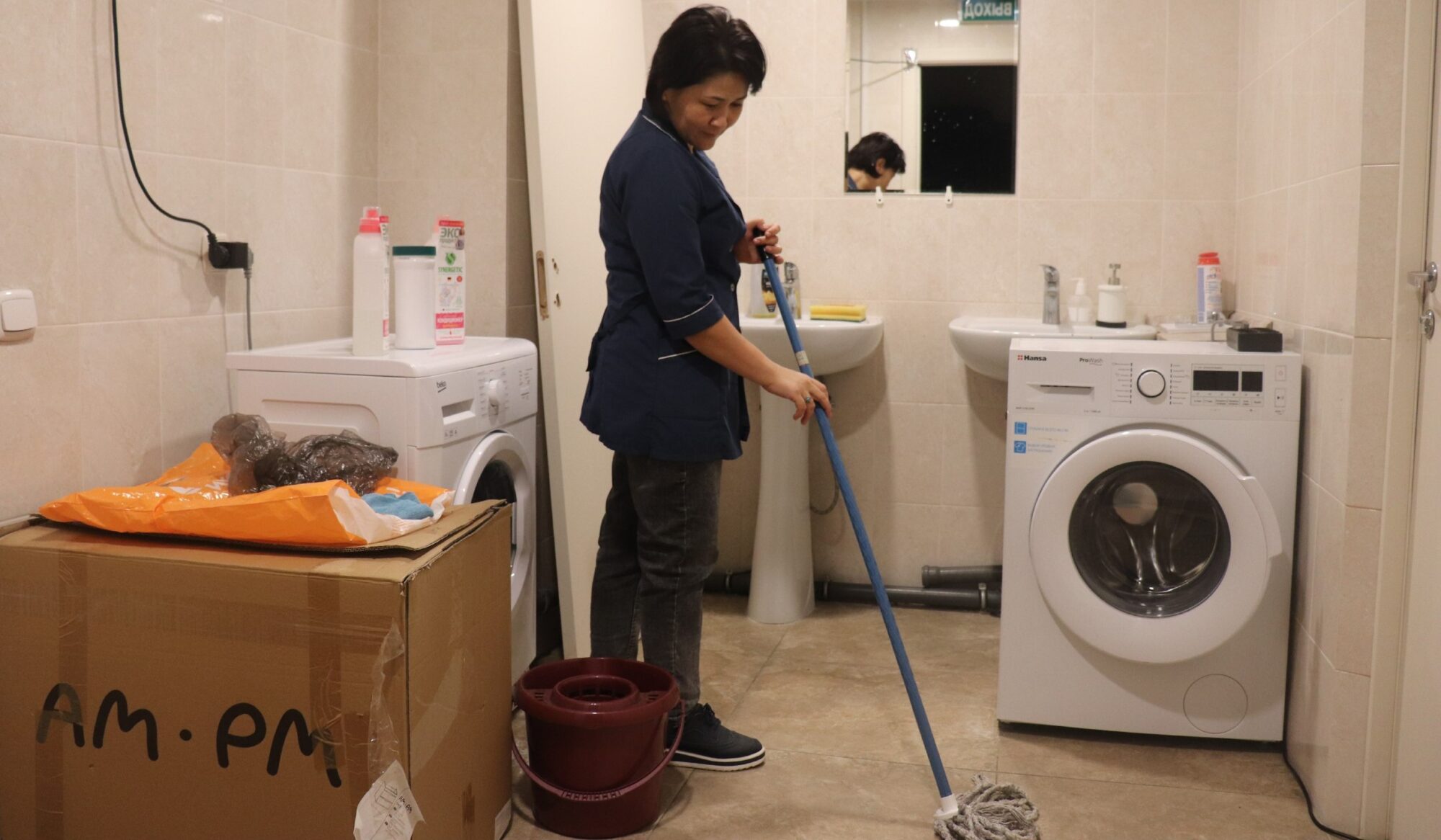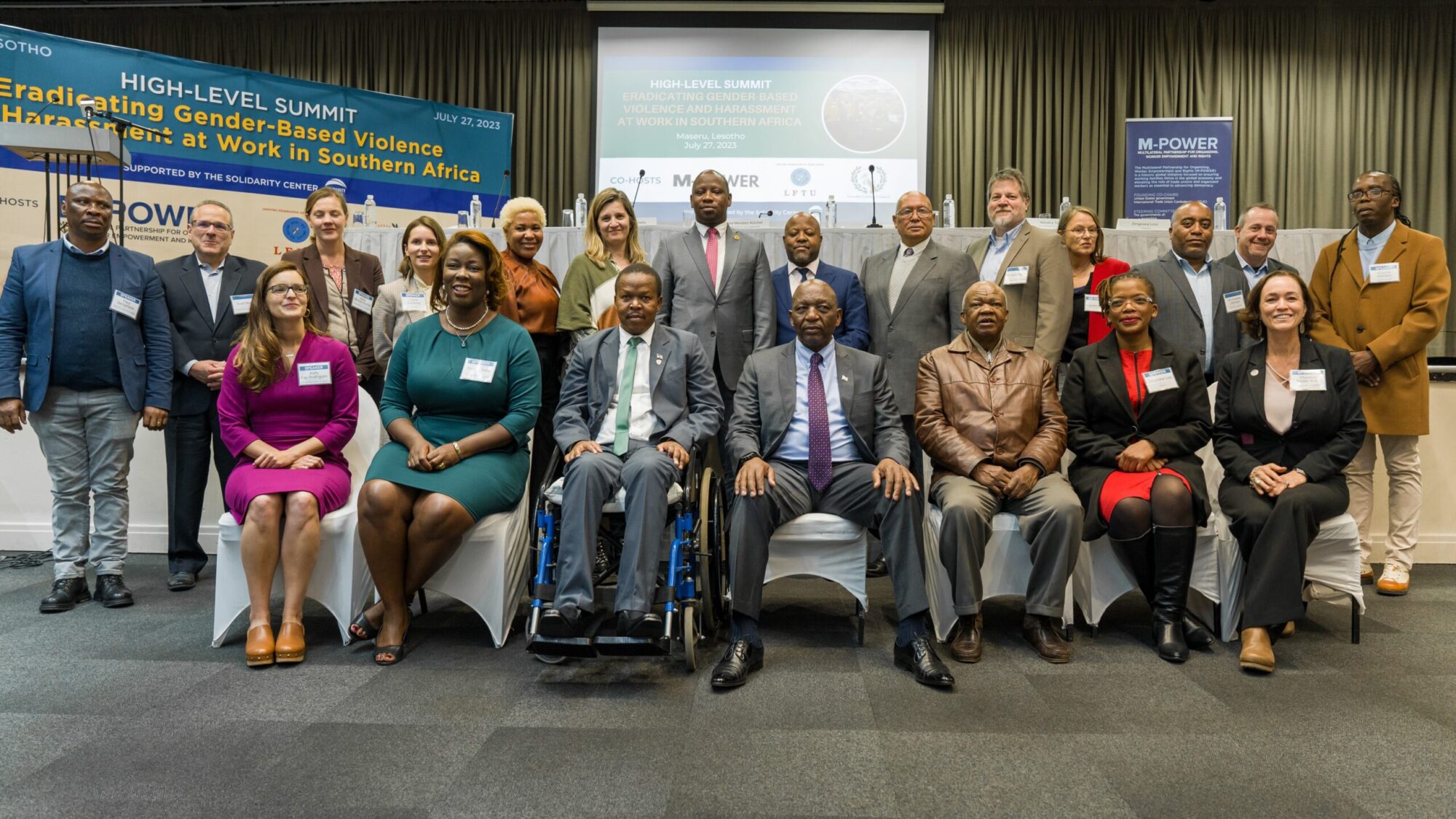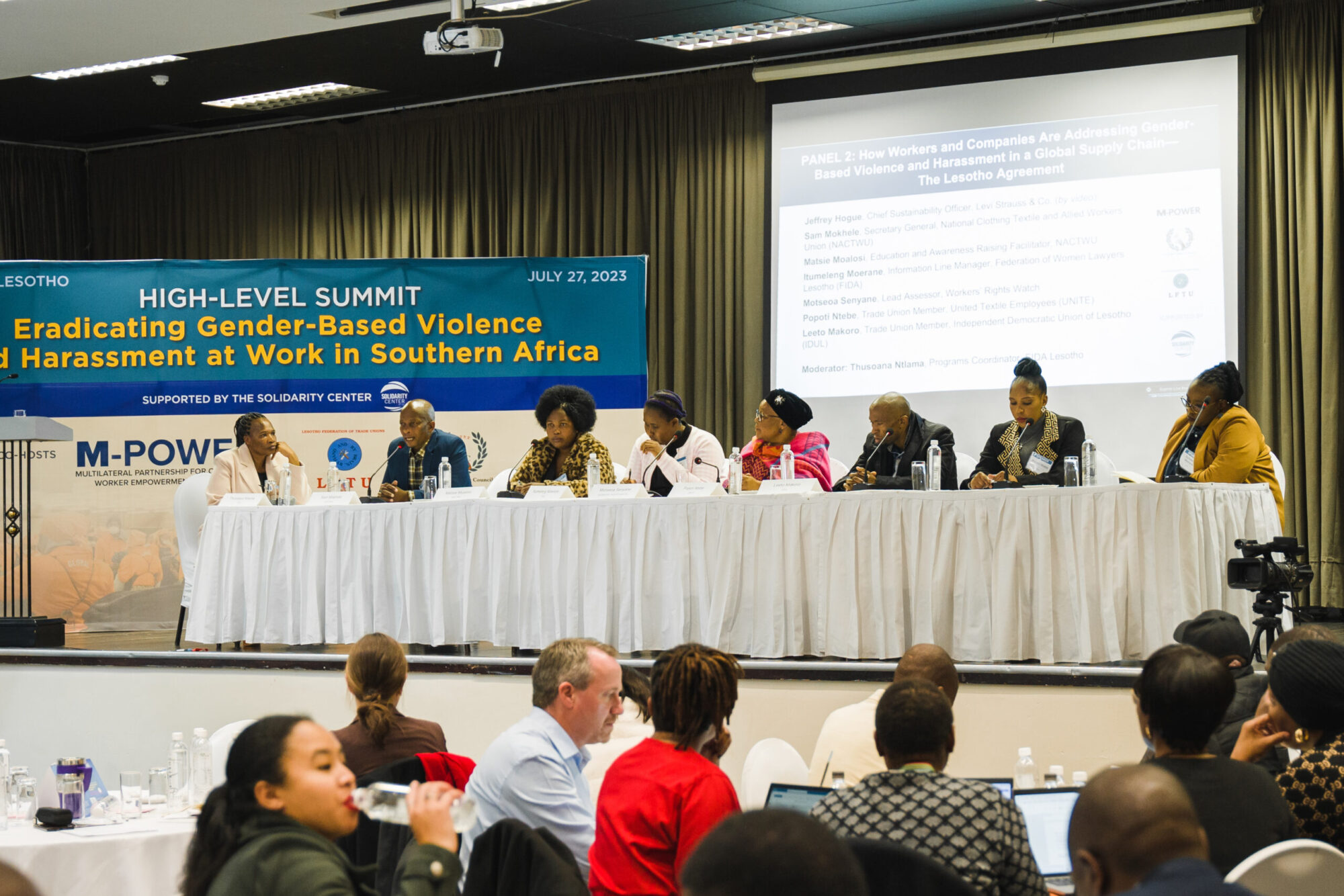Women and workers from marginalized communities suffered disproportionately from the impact of the COVID-19 pandemic and a new survey details the effects on Kyrgyz migrant workers in Russia. The survey of almost 300 Kyrgyz women who are dependent on precarious,...
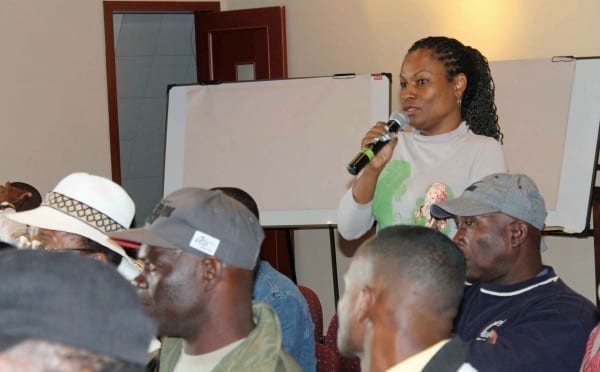
The Solidarity Center supported the development of the Afro-Colombian Labor Council, the first national organization in Colombia dedicated to improving the working conditions of Afro-descendants. Credit: Solidarity Center/Rhett Doumitt
The Solidarity Center engages with unions and their allies through an analysis and practice of equality, radical inclusion and intersectionality that is explicitly feminist, anti-racist, pro-equality, pro-worker, pro-migrant and class conscious.
The Solidarity Center designs and implements strategies to confront the multiple and intersecting forms of oppression that contribute to economic structures in which women and other groups of workers are devalued and excluded from economic and social equality. This requires a conscious effort to examine how oppressive forces play out throughout the global labor movement with a commitment to dismantle these systems. Explicit in this work is the understanding that the agency and leadership of the most marginalized workers are key components of decent work and economic justice for all.
The Solidarity Center has assisted unions and their allies in countries such as Cambodia, Colombia, Georgia, Honduras, Indonesia, Kyrgyzstan, Morocco, Nigeria, Nicaragua, South Africa and Tunisia to ensure meaningful participation of historically excluded and marginalized workers in unions and other democratic structures.
See related factsheets, videos and reports.
In Morocco, the Solidarity Center supported a multi-year effort to build women worker power and gender equality which led to the inclusion of women workers during negotiations for the first collective bargaining agreement in the informal agriculture sector. In Colombia, the Solidarity Center supported the development of the first national organization dedicated to improving the working conditions of Afro-Colombians.
In Kyrgyzstan, Morocco and Tunisia, Solidarity Center is assisting in strengthening union efforts to promote inclusion of individuals with disabilities. In Nicaragua, Solidarity Center supports domestic workers as they address inclusion of LGBTQI union members to ensure they can represent themselves, articulate their priorities and increase their leadership opportunities and visibility.
The Solidarity Center:
- Conducts research and awareness-raising to challenge systems of oppression and inform inclusive approaches to building worker power across social identities at all levels
- Supports representative, inclusive leadership in our partner organizations
- Engages in cross-movement work to combat tools of oppression that impact women, including gender-based violence and harassment at work
- Brings together unions and community groups to identify shared socioeconomic struggles, analyzes how those struggles are linked to systemic racism and implements organizing, legal and advocacy strategies to collectively overcome the oppression that entraps workers in poverty
- Advocates for economic policies that uproot systemic discrimination and exploitation in labor markets.
M-POWER SUMMIT: GOVERNMENTS, UNIONS UNITE AGAINST GENDER-BASED VIOLENCE AT WORK
Millions of workers—most of them women—face intimidation, humiliation, physical and verbal assault, and worse on the job. A July 27, 2023, international summit in southern Africa gathered representatives from the governments of Argentina, Canada, Germany, Lesotho,...
M-POWER SUMMIT: Program to End Violence, Harassment Changing the Dynamic in Lesotho
An unprecedented, binding, worker-centered program designed to comprehensively address rampant gender-based violence and harassment in several garment factories in Lesotho is succeeding in creating a safe and dignified workplace in Lesotho, attendees of a...
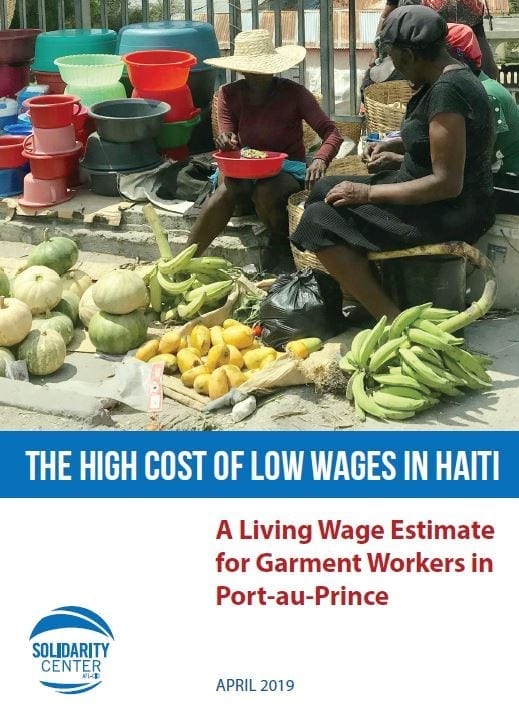
The High Cost of Low Wages in Haiti (2019)
Haitian garment workers face increasing difficulty in covering basic expenditures as prices soar while wages hover far below the cost of living. Download here in Creole. Download here in English. Download here in French.
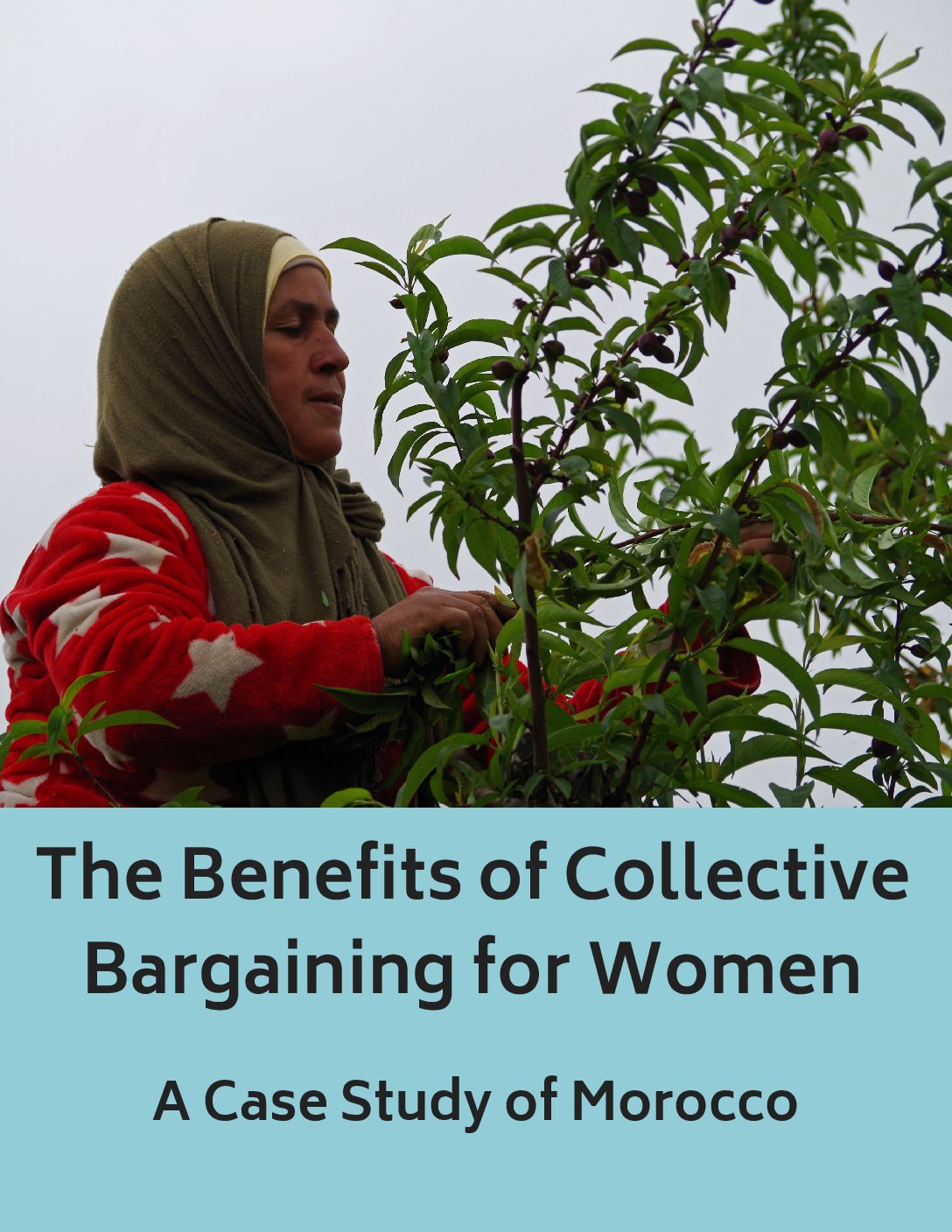
The Benefits of Collective Bargaining for Women: A Case Study of Morocco
This study by the International Center for Research on Women (ICRW) and Solidarity Center finds women workers in Morocco’s fertile Meknes region are making big gains in gender equality on the job through their union, the Confédération Démocratique du Travail (CDT)....
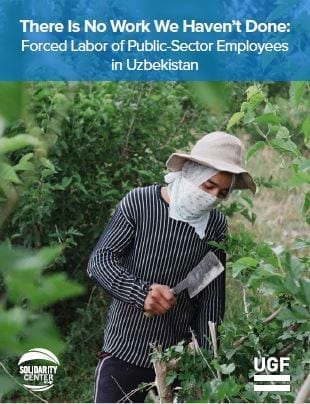
There Is No Work We Haven’t Done: Forced Labor of Public-Sector Employees in Uzbekistan
Although the government of Uzbekistan has made progress on ending child and adult forced labor in the cotton fields after more than a decade of international pressure, a new report finds that forced labor remains rampant in other arenas of Uzbek life, affecting...
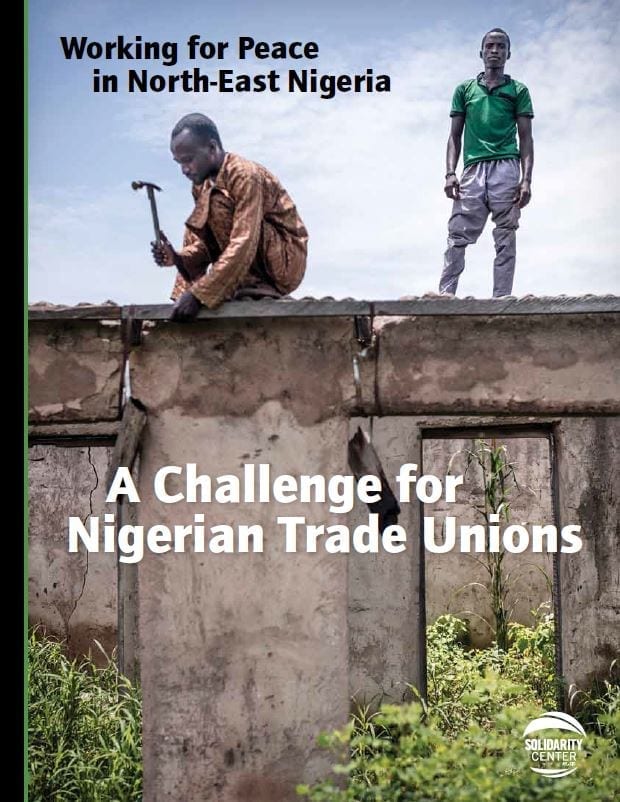
Working for Peace in North-East Nigeria
This report analyzes the impact of violence in North-East Nigeria, where teachers, health care professionals and civil servants were the victimized by insurgents targeting symbols of state authority. The report includes recommendations for government and worker...
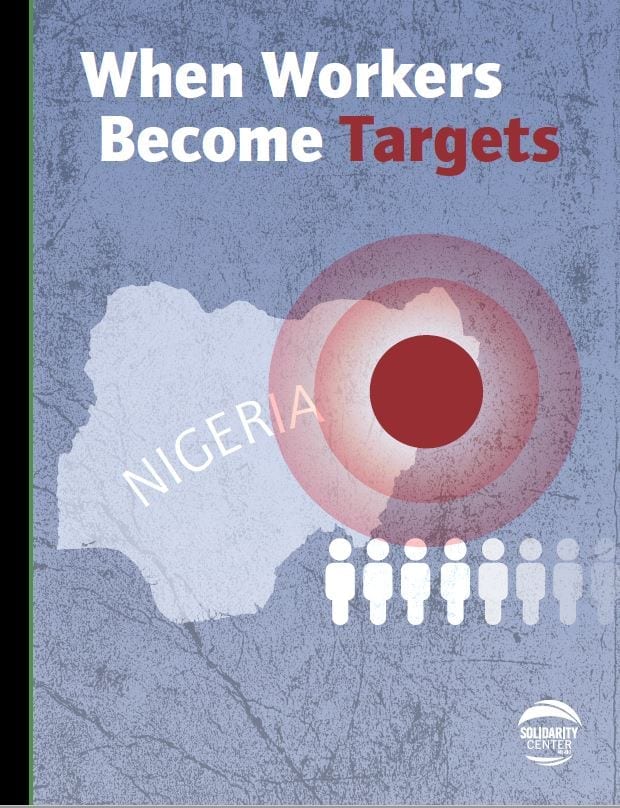
When Workers Become Targets: Nigeria
"When Workers Become Targets: Nigeria," is a collection of real-life experiences of workers, particularly women, during the Boko Haram insurgency in Borno State, North-East Nigeria, and how unions whose members suffered the greatest toll played a crucial role in the...
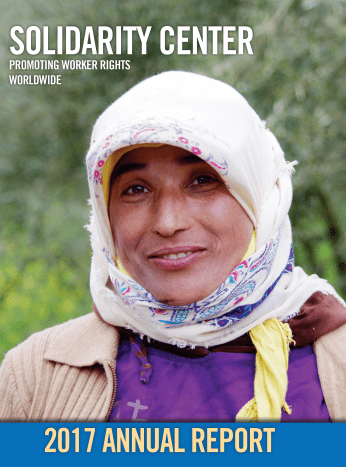
Annual Report 2017
Download here.

